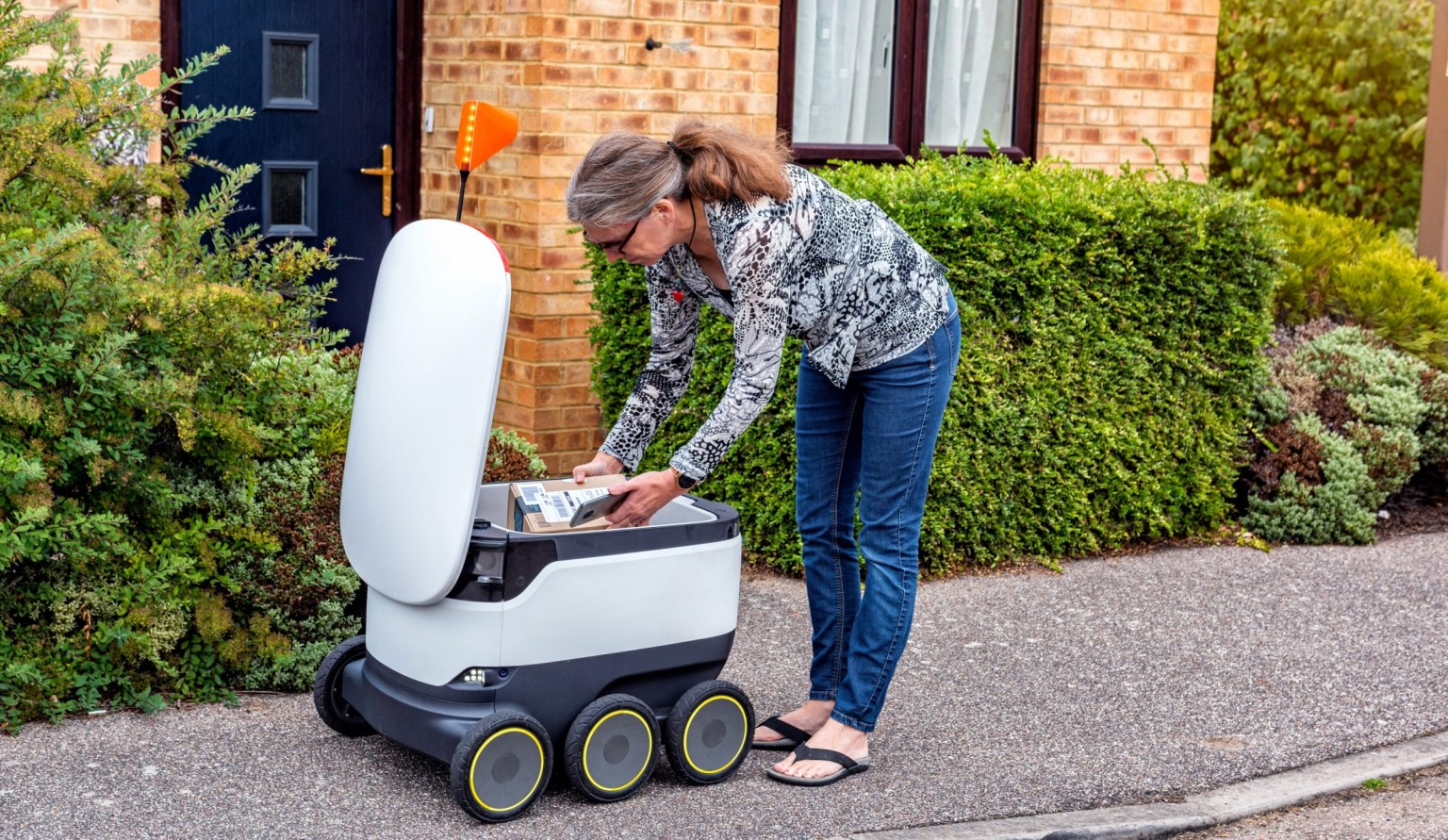The coronavirus presents us with a completely new challenge. Through home office and virtual work, we are currently learning how to deal with the digital transformation that was previously often required. But not only collaborative tools such as slack, teams and zoom are experiencing a rapid rise in our everyday lives. Robots and AI also support every process of our lives in these uncertain times. Robotics complements the human workforce and helps us to master the situation in many areas.

delivery robots in use (Source: MIT Technology Review)
The nurses, doctors and parcel carriers who are receiving mechanical assistance are just learning that they don’t have to worry about the machines replacing them. They rather see them as tools that can help them in practice. Medicine itself remains, for the time being at least human, because it requires fine motor skills, compassion and quick decisions about life and death, which we do not want to leave to AI.
The journal “Science Robotics” has now put forward an exciting hypothesis that the pandemic we are currently facing is a unique opportunity to stimulate the development of robotic technologies. At least that’s what a dozen roboticists argue in the magazine’s editorial.
robots as helpers in distress
Whether in healthcare, grocery stores or the post office, employees there are exposed to the corona virus every day. Robots can take over many of the dangerous tasks and support people in times of “social distancing”.
Robots have the potential to be used for disinfecting sickrooms, dispensing medicines and food, measuring vital signs and assisting border controls. Robots cannot get sick and can therefore interact directly with infectious agents or sick people.

Examples of the successful use of robots are now becoming increasingly common. For example, there is a robot that uses UV light to disinfect rooms, and in China and parts of Europe it is now driving through the corridors of hospitals.
Social robots also play an important role for people in quarantine. They can fill in part of the lack of social interaction and support the emotional stability of the sick or isolated. Delivery robots are also increasingly rolling through the streets and bringing food to the front door.
We are therefore currently experiencing a period of upheaval. Not only is it an exciting and crisis-ridden time for many industries, but many technologies that were previously not widely used in our world are now becoming part of everyday life. It will be important that the added value and the new understanding of the possibilities offered by innovation technologies such as robotics, AI and virtual reality will continue to exist after the Corona crisis and will continue to be seen as support for people from a wide range of professions.
Post picture: Blue Ocean Robotics

